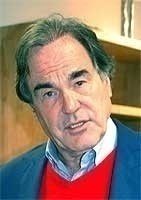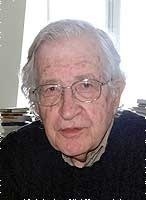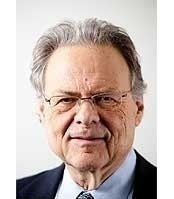70 American intellectuals publicly criticize Ambassador Kennedy’s stand on Henoko relocation plan
December 24, Ryukyu Shimpo Sakae Toiyama reports from Washington, DC
Seventy American intellectuals, including film director Oliver Stone and linguist Noam Chomsky, issued a public statement on December 22 criticizing U.S. ambassador to Japan Caroline Kennedy for her comments on December 17 relating to MCAS Futenma at a press conference at Japan National Press Club. Part of the statement says that Kennedy’s comment regarding the Henoko relocation plan is “…at once a threat, an insult and a challenge for the vast majority of Okinawans who are vehemently opposed to the plan and [shows] brazen disregard for the law, the environment, and the outcome of elections.” Furthermore, the statement addressed ceasing construction of the replacement facility at Henoko with the words: “…as American citizens we insist that the government stop forcefully denying basic human rights … to the citizens of Okinawa.”

Oliver Stone

Noam Chomsky

Morton H. Halperin
This is the fourth time intellectuals from abroad have issued a public statement in regards to Henoko relocation of MCAS Futenma. This particular statement, however, comes from U.S. intellectuals protesting comments by Ambassador Caroline Kennedy made in her capacity as a representative of the U.S. government. Oliver Stone has signed onto previous statements, but this time he has been joined by new signatories. These include a U.S. negotiator on the 1971 Okinawa reversion agreement Morton H. Halperin, former U.S. diplomat and retired Army Reserve Colonel Ann Wright, and former U.S. Senator Mike Gravel.
In relation to the Henoko relocation plan being advanced by the governments of the U.S. and Japan, the statement made the point that, “MCAS Futenma must be closed, but moving it to Henoko isn’t the solution. It merely shifts the problem to a less conspicuous location, introducing environmental and safety threats to another part of the island and reinforcing Okinawa’s role as a U.S. military bastion.”
Full text of U.S. Citizens’ Response to Ambassador Caroline Kennedy’s Statement of Support for the Henoko Plan
In her December 17 Tokyo press conference, U.S. Ambassador to Japan Caroline Kennedy faithfully parroted Obama administration’s contention, saying that building a new U.S. marine base at Henoko in Okinawa is “the best of any other plan considered.”
After cordial comments about the U.S. striving to “be good neighbors” and “working hard to reduce the impact” of the dozens of U.S. bases that occupy almost 20 percent of the land mass of Okinawa Island, Kennedy declared her support for the base that Okinawans have been protesting against tirelessly and in the face of brute physical force and intimidation for hundreds of days.
Asked what she thinks about the Okinawan people’s overwhelming opposition to the base construction and if the U.S. would consider an alternative plan, Kennedy replied: “People worked very hard, considered many options to develop this plan [for closing and relocating the U.S. marine base currently located in highly populated Ginowan] that I think is the best of any other plan that was considered.”
Kennedy’s statement that the U.S. wants to close Futenma and build at Henoko as fast as possible is at once a threat, an insult and a challenge for the vast majority of Okinawans who are vehemently opposed to the plan and the brazen disregard for the law, the environment and the outcome of elections. MCAS Futenma must be closed, but moving it to Henoko isn’t the solution. It merely shifts the problem to a less conspicuous location, introducing environmental and safety threats to another part of the island and reinforcing Okinawa’s role as a U.S. military bastion.
At the end of the press conference, Kennedy was invited to sign the Press Club’s guest book beside a quotation from her father, President John F. Kennedy. The ambassador obliged the request with a JFK quote about press freedom.
During her press conference, Kennedy stubbornly, if politely, regurgitated the U.S.’s insistence on forcing Henoko despite mounting protests and an active lawsuit. Ambassador Kennedy should have selected a quote from President Kennedy’s 1963 Commencement Address delivered at American University in which he offered a powerful and compelling argument for world peace.
“Every thoughtful citizen who despairs of war and wishes to bring peace,” President Kennedy said, “should begin by looking inward — by examining his own attitude toward the possibilities of peace…”
Ambassador Kennedy serves as a public microphone for U.S. elected officials, policymakers, and military leaders who have neither the guts nor the gumption to honestly or honorably address the concerns of Okinawans. She should reread her father’s speech wherein he rejects a “Pax Americana enforced on the world by American weapons of war.”
If she were to do so, Ambassador Kennedy would be reminded that her father asked, “Is not peace, in the last analysis, basically a matter of human rights — the right to live out our lives without fear of devastation — the right to breathe air as nature provided it — the right of future generations to a healthy existence?”
Because those words still have meaning to us, as American citizens we insist that the U.S. government stop forcefully denying basic human rights, including self-determination and living in a healthy, safe environment, to the citizens of Okinawa.
List of U.S. signatories to the above statement:
1. Christine Ahn, Women Across DMZ
2. Gar Alperovitz, Co-Chair The Next System Project, former Lionel R. Bauman Professor of Political Economy, University of Maryland
3. Christian G. Appy, Professor of History, University of Massachusetts
4. Sandi Aritza, Translator
5. Davinder Bhowmik, Associate Professor of Modern Japanese Literature, University of Washington
6. Herbert Bix, Emeritus Professor of History and Sociology, State University of New York at Binghamton
7. Courtney B. Cazden, Professor Emeritus, Harvard University
8. Noam Chomsky, Professor Emeritus of Linguistics, Massachusetts Institute of Technology
9. Marjorie Cohn, Professor, Thomas Jefferson School of Law
10. Elizabeth Cori-Jones, M.Ed. (Harvard)
11. Frank Costigliola, Professor of History, University of Connecticut
12. Fr Bob Cushing, Pastor at St Joseph Church, Georgia
13. Sasha Davis, Assistant Professor, Keene State College
14. Jean Downey, M.A., J.D., Contributing Editor, Kyoto Journal
15. Alexis Dudden, Professor of History, University of Connecticut
16. Richard Falk, Milbank Professor of International Law Emeritus, Princeton University
17. John Feffer, Director, Foreign Policy In Focus
18. Norma Field, Professor Emerita, University of Chicago
19. Max Paul Friedman, Professor of History, American University
20. Bruce K. Gagnon, Coordinator, Global Network Against Weapons & Nuclear Power in Space
21.Daniel H. Garrett, Former U.S. Department of State Foreign Service Officer; Senior Associate, The Asia Institute
22. Joseph Gerson, PhD, Working Group for Peace & Demilitarization in Asia and the Pacific
23. Gary R. Goldstein, Professor, Tufts University
24.Mike Gravel, U.S. Senator (1969-1981)
25. Mel Gurtov, Professor Emeritus of Political Science, Portland State University
26. Morton H. Halperin, Political Scientist
27. Laura Hein, Professor Northwestern University
28.Dud Hendrick, Deer Isle, Maine, Member of VFP 2015 delegation to Okinawa
29.Mickey Huff, Professor of History, Diablo Valley College, Director of Project Censored
30.Pat Hynes, Director, Traprock Center for Peace and Justice, Massachusetts, USA
31.Kyle Ikeda, Associate Professor of Japanese, University of Vermont
32.Vincent Intondi, Associate Professor of History, Montgomery College
33. Xeni Jardin, Technology Journalist
34. Rebecca Jennison, Dept. of Humanities, Kyoto Seika University
35. John Junkerman, Documentary Filmmaker
36. Sheila K. Johnson, Anthropologist
37.Kyle Kajihiro, Board Member, Hawaiʻi Peace and Justice
38.Tarak Kauff, Veterans For Peace, Board of Directors
39.Peter Kuznick, Professor of History, American University
40.Barry Ladendorf, National President, Veterans for Peace
41.Joe Lauria, former Wall Street Journal United Nations correspondent
42.Jon Letman, Journalist
43.Stanley Levin, Korean War Veteran and member of the VFP 2015 delegation to Korea
44.C. Douglas Lummis, Visiting Professor, Okinawa Christian University Graduate School
45.Catherine Lutz, Professor, Brown University
46. Andrew R. Marks, M.D., Professor of Columbia University
47.Kenneth E. Mayers, Major USMCR (Ret’d), Member of the VFP 2015 Delegation to Okinawa
48.Yosi McIntire, lifetime student
49. Katherine Muzik, Marine Biologist, Kaua’i
50. Khury Petersen-Smith, doctoral candidate, Clark University School of Geography, Massachusetts
51.Robert Naiman, Policy Director, Just Foreign Policy
52.Koohan Paik, Program Director, International Forum on Globalization
53. Samuel Perry, Associate Professor, Brown University
54.Margaret Power, Professor of History, Illinois Institute of Technology
55.Craig Quirolo, Founder, Rape Relief
56. Steve Rabson, Professor Emeritus, Brown University
57.Betty A. Reardon. Ed.D., Founding Director Emeritus, International Institute on Peace Education
58.Lawrence Repeta, Member, Washington State Bar Association
59.Coleen Rowley, retired FBI Agent and former Minneapolis Division Legal Counsel
60.Arnie Saiki, Moana Nui Action Alliance
61.Pete Shimazaki Doktor, Hawai`i Okinawa Alliance & Veterans for Peace Ryukyu Working Group co-founder
62.Tim Shorrock, Journalist and trade unionist
63.Alice Slater, World Beyond War, Coordinating Committee
64. John Steinbach, Hiroshima/Nagasaki Peace Committee of the National Capital Area to the Citizen’s Response
65. Oliver Stone, Academy Award-winning Filmmaker
66.David Swanson, Author
67.Roy Tamashiro, Professor, Webster University
68.Eric Wada, Ukwanshin Kabudan Director, President
69.Lawrence Wittner, Professor of History Emeritus, State University of New York at Albany
70. Ann Wright, retired U.S. Army Reserve Colonel and former U.S. diplomat who resigned in 2003 in opposition to the Iraq War
(English translation by T&CT and Erin Jones)
Previous Article:Two elephants from Fukushima return to Okinawa Zoo and Museum
Next Article:City of Cambridge, MA second in US to pass resolution opposing Henoko base
[Similar Articles]
- Nago Mayor asks US Ambassador Kennedy to cancel relocation of Futenma base to Henoko
- Group of Japanese experts from various fields release joint statement calling for the retraction of Henoko base construction plan
- Kenzaburo Oe and 23 other artists and intellectuals release statement supporting governor’s revocation of Henoko land reclamation permit
- Respect the will of the people; cancel the Henoko relocation
- Scholars and journalists issue statement: Japan and the United States should abandon building a new US base in Henoko
 Webcam(Kokusai Street)
Webcam(Kokusai Street)


